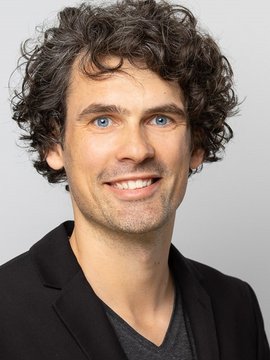Prof. Dr.
Hannes Hofmann

Function and Responsibilities:
Leader of the Helmholtz Young Investigator Group "Advanced reservoir engineering concepts for a controlled utilization of deep geothermal energy in urban areas" (ARES) at GFZ Potsdam
Junior Professor of Reservoir Engineering at Technische Universität Berlin, Institute for Applied Geosciences
Research Interests:
- Enhanced Geothermal Systems (EGS)
- Geothermal reservoir engineering
- Geothermal reservoir simulation
- Sustainable, efficient and safe development and utilisation of deep geothermal energy in urban areas
- Environmental risks and risk mitigation
- Induced seismicity and seismic risk mitigation
Career:
Education:
Projects:
GeoLaB (2023-2032) | Geothermal underground research laboratory
TRANSGEO (05/2023-04/2026) | Transforming abandoned wells for geothermal energy production
CuLiWell (12/2024-11/2025) | Copper and lithium resources in German geothermal wells
DT-GEO (09/2022-08/2025) | Digital twin for geophysical extremes
Wellcom (08/2020-05/2022) | Development of a well completion technology for the sustainable and economical reinjection of thermal water
KEM-15 (09/2020-02/2022) | Risk of seismicity due to cooling effects in geothermal systems
DESTRESS (03/2016-5/2021) | Demonstration of soft stimulation treatments of geothermal reservoirs
Research Boards and Committees:
Member of the Editorial Board of the Journal Geothermal Energy (since 2024)
Deputy chair examination board Geotechnology at TU Berlin (since 2024)
Member Institute Council Applied Geosciences at TU Berlin (since 2023)
Awards:
Young Scientist Award of the German Geothermal Association, 29 Nov. 2018, Essen, Germany
